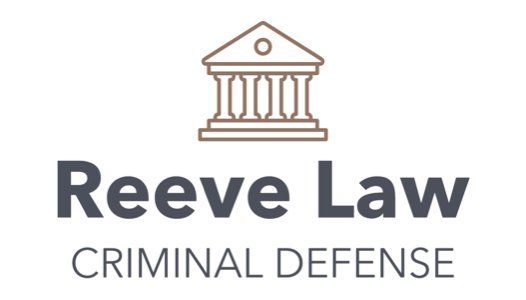FAQs
Frequently Asked Questions
If you have been arrested or are facing the possibility of arrest, then you probably have a lot of concerns about what’s next; you need the advice of an experienced criminal defence lawyer who can answer your questions. Dennis Reeve works with cases like yours every day, helping clients in Newmarket, Markham and the surrounding areas; they are here to address some of the basics. Call for a free consultation to discuss your specific situation as soon as possible.
IF I’M ARRESTED SHOULD I GIVE A STATEMENT TO THE POLICE?
Absolutely not. Any time you are detained or arrested by the police you will be informed that you have a right to speak to a lawyer without delay and the police must assist you in doing so. Exercise your right to get advice from a lawyer immediately. Your lawyer (often it’s Duty Counsel) will advise you to say nothing about the offence or allegations to the police. You have an absolute right to remain silent but the police also have the right to ask questions. Identify yourself to the officer with your name, address, date of birth, etc. as well as your next of kin to contact and particulars of employment, as they may be necessary for you to be released but do not, ever, speak to the police about the offence, the allegations or anything surrounding it.
IF I DON’T GIVE A STATEMENT TO THE POLICE WON’T I LOOK GUILTY?
Absolutely not. The police officer is already PRESUMING YOU ARE GUILTY. The purpose of getting a statement from you is to get you to admit or confess and/or to obtain some information from you that only the guilty person would know. Anything you say can and will be used against you however if you exercise your legal and constitutional right to remain silent, if the matter goes to trial, the prosecutor cannot mention that you did not give a statement to the police and the judge cannot draw an adverse inference from the fact the you exercised your right.
IF I’M NOT GUILTY WHY SHOULD I BE AFRAID TO GIVE A STATEMENT TO THE POLICE?
Getting a statement from you is one of the most important steps in the police making a case against you. Things you say may be misinterpreted or taken out of context to mean something completely different. Police will lie to you. Police are not required to act fairly with you. You will not convince the police officer that you are innocent. You will not outsmart them. Some police officers are trained in techniques of interview and interrogation designed specifically to get you to confess to the crime, even though you may not be guilty.
WHAT ARE THOSE TECHNIQUES?
The most prevalent and well know technique is known as the “Reid Technique of Interviewing and Interrogation”. The process is broken down into 2 parts, the first being the “Reid Behavior Analysis Interview (BAI) followed by the “9 Steps of Interrogation”. If interested, look at my page “Summary of the Reid Technique of Interviewing and Interrogation” which you can find under the PRACTICE page.
Am I going to jail?
If you’ve been arrested, jail may not be a foregone conclusion. While your case is awaiting trial, you may be released on bail or on your own recognizance. If you are convicted, your sentence will depend largely upon the nature of the offence and any prior criminal record you may have. The Criminal Code of Canada prescribes some minimum penalties for certain offences. No matter what the case, though, the best way to avoid jail time is to retain qualified, competent legal counsel to represent you.
Will I have a criminal record?
A criminal record can have far-reaching consequences for your job and future employment prospects, your educational and travel opportunities, your family, and your reputation. A seasoned criminal defence lawyer can work on your behalf to have the charges against you reduced or even dismissed before trial, or can fight for your acquittal at trial. Hiring strong legal representation is the best way to prevent the establishment of a criminal record that may haunt you for years.
Why was I fingerprinted?
The Identification of Criminals Act of 1985 allows the police to collect fingerprints and photographs of any person that has been charged with a criminal offence before their trial. If you are acquitted of the charges against you, then you may successfully apply to have those records destroyed. A criminal defence lawyer can advise you about this.
Can I represent myself in court?
You can, but it is not recommended. Criminal defence lawyer Dennis Reeve describes the legal system in Ontario as a “mine field” of complex legal issues and procedures. An experienced criminal defense lawyer has the training and expertise to assess every aspect of your case, guide you through the process, and represent you in court.
What is a peace bond?
A peace bond is a promise that is enforceable under the Criminal Code of Canada. The person who is the subject of the bond makes a promise to remain on good behavior and obey any additional terms and restrictions that may be ordered by a judge. (Such restrictions might include refraining from contact with certain persons, restricting the person from going to certain locations, and preventing the person from keeping firearms and ammunition.) The promise usually binds the person for a period not to exceed twelve months.
Am I entitled to bail?
Every person accused of a crime in Canada has a right to be considered for release on bail while awaiting trial. Bail hearings are generally held within 24 hours of the arrest. You have the right to legal representation at your bail hearing, so if you have been arrested or believe an arrest is imminent, call a criminal defense lawyer to make sure that you have a professional on your side during the bail process.
The legal team of Reeve Law, Barristers has over 60 years of collective criminal law experience. Our lawyers have worked hard to establish themselves as formidable litigators in court as well as efficient negotiators on matters such as plea bargains. Dennis Reeve has served as Crown prosecutors; this experience gives him invaluable insight into each case’s unique strengths and weaknesses and helps him choose the best strategies for protecting his clients. Reeve Law are dedicated to impeccable preparation, fierce yet professional advocacy, and providing the best possible defence for each client. Reeve Law look forward to bringing their decades of legal experience to your case, protecting your rights, and providing the advice and representation you need.

